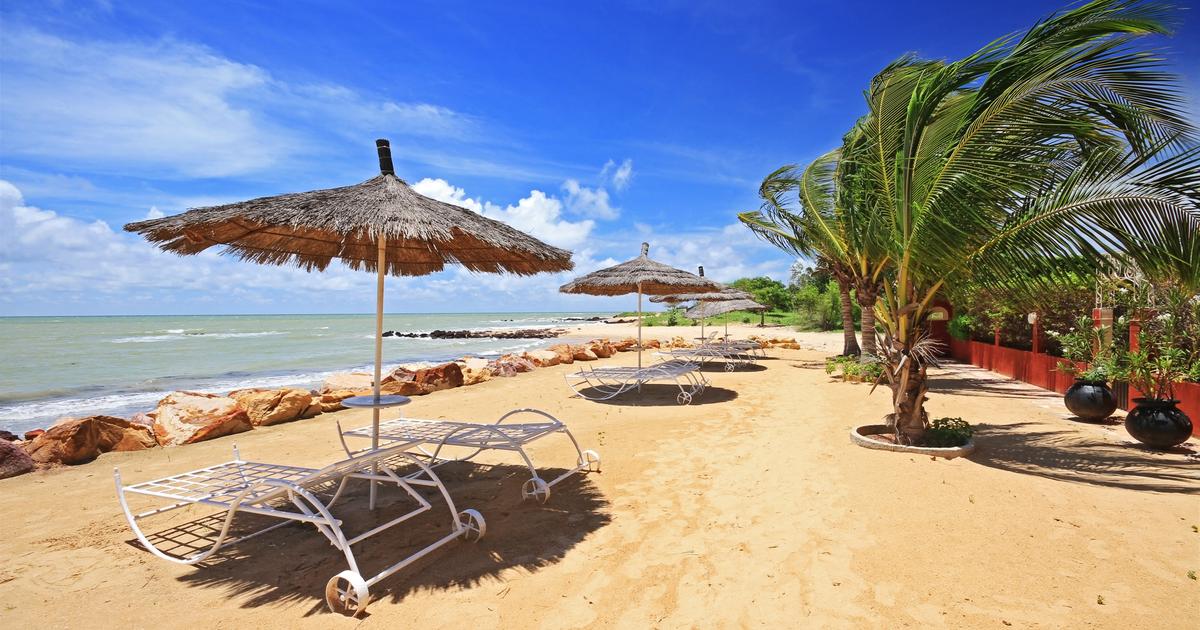The white sand beaches of Senegal bordering the Atlantic seem far from the unrest that gripped the country after the announcement of the postponement of the presidential election, but in Saly, one of the hotspots of Senegalese tourism, the crisis is taking hold. feel according to the locals.
“It's very hard here in February, there aren't many people
,” says Adjo Fatou Sene, 39, a souvenir seller on the beach, for whom
“people are afraid to come
. ”
Since the announcement on February 3 of the postponement of the presidential election by President Macky Sall, then of the holding of the vote on December 15, three people have been killed during banned demonstrations.
The cancellation of the election just three weeks before the deadline led to one of the most serious crises in the history of independent Senegal, causing international concern and certain economic circles in the country.
Uncertainty increased further after the Constitutional Council invalidated the postponement of the presidential election on Thursday, with the country immediately waiting to know when it will vote and under what conditions.
At this time of year, the beaches of Saly are generally full of European tourists who come to seek the sun.
But, says Adjo Fatou Sene, this year there are fewer of them,
“a bad thing”
:
“if we don’t sell, we can’t feed our children”
.
Normally, she earns on average 15,000 to 20,000 CFA francs (22.5 to 30 euros) daily, selling jewelry or bags.
This year, she claims to only pocket 2,500 to 5,000 CFA francs (3.8 to 7.6 euros).
25 to 30% of reservations canceled
In 2022, tourism represented nearly 7% of Senegal's GDP and around 8% of jobs, according to the World Travel and Tourism Council.
High season runs from November to the end of April and is essential for coastal residents.
Pape Berenger Ngom, president of the Association of Hotel and Catering Professionals of Senegal, estimates that 25 to 30% of reservations have been canceled across the country since the outbreak of the political crisis.
“It’s huge in a sector of activity like tourism
,” he notes, in
“many areas in Senegal people only make a living from tourism
. ”
However, the crisis immediately spares the large hotels in Saly.
The 117 rooms of the Royam Hotel, a four-star hotel, are occupied, indicates its manager, Delphine Oger.
“Tomorrow, I don’t know, but today there is no impact on the arrival of our tourists
,” people
“don’t seem worried about what’s happening.
Not at all
,” she says.
The tourists encountered in this type of establishment claim to be aware of the political situation but, for many, the situation in Dakar, 90 km from Saly, does not affect the peace and security of the hotels in this seaside resort.
“I don’t get many people”
“There is very good protection for foreigners
,” says Emil Pronk, an 80-year-old Dutchman, referring to guards and security barriers at hotel entrances.
Senegal's image as a haven of stability in a West Africa plagued by coups and jihadist violence has helped position it as an attractive vacation destination.
Since 2014, the Agency for the Promotion of Tourism has been promoting the country as the Land of “Teranga”, a word from the national Wolof language that can be translated as hospitality.
But professionals fear that the current violence will tarnish this reputation.
“The Senegalese Teranga is always mistreated every time the politicians (...) do not get along and it is the tourism sector that pays
,” says Mouhamed Faouzou Deme, representative of more than 300 actors in the tourism.
Concerns mainly relate to SMEs.
“I don't get many people, only on weekends, when it's usually crowded
,” points out Daouda Diop, 42, in her beach restaurant.
He also deplores a falling demand for the excursions he organizes.
In the middle of the afternoon, only a couple of Corsican retirees, regulars of Senegal for more than 20 years, are seated at the table.
“I have friends who were supposed to come, but they canceled because they were afraid, it’s a shame” because “nothing has ever happened here too much
,” says Marie-France, 73 years old.
“In Dakar perhaps, but not in Saly.”

